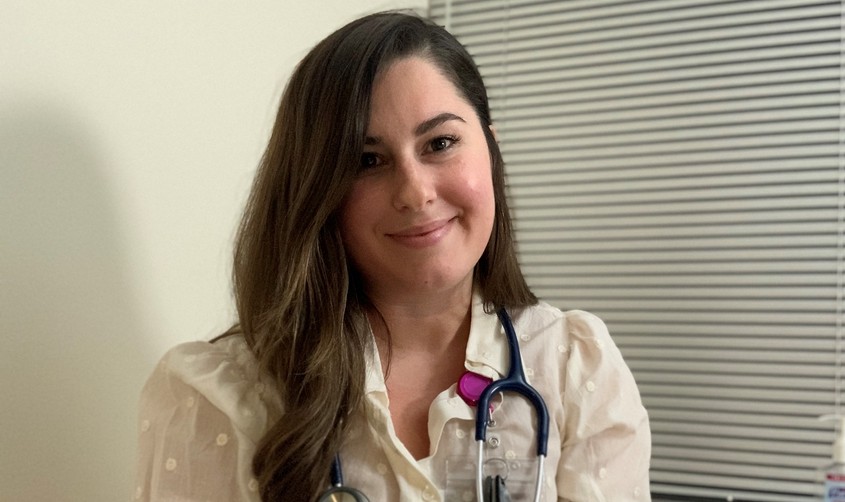Infectious Disease Grad Addressing Ever-Changing COVID Conditions

Most patient visits start with obtaining a medical history, an all-important record of allergies, illnesses, and more that helps physicians formulate a diagnosis. With the coronavirus disease (COVID-19) pandemic sweeping the United States and countries around the world, clues in these histories can not only help an individual but affect the treatment of much larger populations.
“Infectious disease physicians are very good diagnosticians,” said Lorena Polo, MD ’13, an ID physician at First Choice Health Centers, an outpatient facility in East Hartford, CT. “You have to take very good histories from the patient. You have to be a good listener. And then you take the bits and pieces of information, see where they might have been exposed, create a story, and come up with a diagnosis.”
She remembers her first COVID-positive patient well—a patient in their 20s—well after the disease emerged elsewhere. Since then, her practice has seen a steady flow of patients who present with COVID-19 symptoms—fever, cough, shortness of breath. While some are admitted at local hospitals, a vast majority are treated at home. Even if patients have mild or no symptoms, they still pose the threat of transmitting the disease to other community members.
“A very large number of patients are battling this illness or recovering from it at home,” she said. “Often on the news, they are only showing the mortality or high morbidity aspects of the disease. And while important, this has also created a sense of anxiety because patients don’t know what to expect. Being afraid is a natural human response to the unknown, and we want to prevent that by making sure our patients are well informed.”
With governmental regulations changing by the week or even the day, Dr. Polo and her colleagues have made a point to stay up to the minute themselves so they can safely care for their patients. The situation is changing so quickly that infectious disease fellowship books are being updated with COVID-19 information as it becomes available.
Infectious disease physicians are more than prepared for common afflictions such as influenza, pneumonia, staph infections, and more. With familiarity, the symptoms are easy to identify and the procedure to treat is spelled out. However, like past outbreaks of diseases such as SARS, MERS, and Ebola, the COVID-19 pandemic has challenged the healthcare community to come up with a treatment and a cure in a short period of time.
“We’ve trained for infections that may have been imported from other countries. We live in a society where there’s a lot of travel both domestically and internationally. We’re familiar with it because of the way that society has worked,” Dr. Polo said. “But no amount of fellowship training can prepare you for such a complex disease. It’s a very unique and challenging time.”
–Brett Mauser

